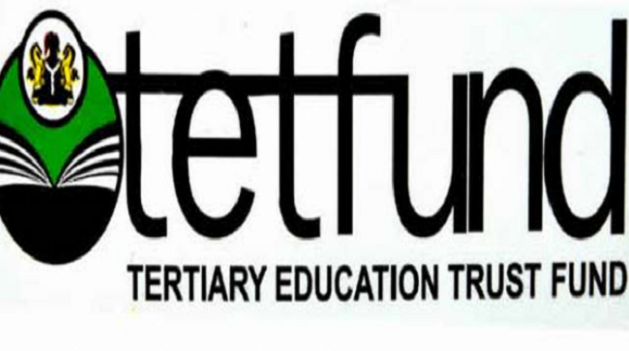General News
DHL, Google Disclose Intents of New Age E-Commerce Consumers

The rise of e-commerce on the African continent is changing the face of the traditional consumer, and brands need to adapt their business models and strategies in order to remain relevant amongst consumers and avoid a drop in market share.
African consumers are increasingly searching online platforms with commercial intent, which include querying prices of goods, and researching where products or services can be purchased.
According to research by Google South Africa, there was an increase of 49% in query volumes in Nigeria, 37% in South Africa and 33% in Kenya, during 2014.
Charles Brewer, managing director of DHL Express Sub Saharan Africa said that understanding your consumer, knowing how to target communications to them and ultimately deliver what they want, when they want it, is key to the ongoing success of e-commerce in the region.
“Africa’s growing middle class is driving consumer demand and in turn, the e-commerce industry on the continent. As a result, retailers need to ask themselves if they are ready for this ‘new’ and evolving client base.
He added that, “Logistically and operationally speaking, businesses will need to shift from a business-to-business approach to a more business-to-consumer approach as retailers will now have to meet the demand of transporting products to individual clients. New structures will need to be implemented to ensure that the company’s supply chain is agile enough to respond quickly and effectively to the increased demand.”
Brewer noted that while there is huge potential for e-commerce in the region, compared to emerging markets, e-retailing in Africa is still in its infancy.
A recent retailing study conducted by Urban Studies on behalf of South African Council of Shopping Centres (SACSC), revealed that Africa and the Middle East’s share of global e-commerce in 2015 is just 2%, but that it shows high potential.
This is supported by a recent report by McKinsey & Company, which revealed e-commerce could account for 10% of retail sales in Africa’s largest economies by 2025.
Google also predicts that a massive e-commerce market will emerge in Africa by 2017 as the continent becomes more familiar with technological advances.
As e-commerce gains momentum, it once again highlights the potential for local retailers and entrepreneurs.
A great success story is that of Bethlehem Tilahun Alemu, who founded soleRebels, a footwear company in Addis Ababa, Ethiopia in 2005.
Within less than a decade, she has been able to grow her business from an organization of just five people, producing for her local market, to a global organization of over 300 employees with eight stand-alone stores, serving over 50 countries.
The key to her success in a fiercely competitive retail environment was a combination of traditional African artisan skills and technologies, innovative use of local (often recycled) materials, personal drive and energy, and a global vision.
“This is just one example of the many opportunities that we are seeing in the region. In this developing market, the needs of the emerging e-commerce players have played a key role in our aggressive expansion strategy in Africa,” Brewer added.
General News
IHS Nigeria, Osun State partner to transform technical education

IHS Nigeria has partnered with the Osun State Government on Osun Teacher-Shift 2025, a programme aimed at transforming technical and vocational school teachers into digital-ready educators capable of driving innovation in classrooms.

The IHS Nigeria sponsored initiative, implemented by Focus Teens Foundation in collaboration with the Osun State Board of Technical and Vocational Education, targets about 200 teachers across the State’s nine technical colleges. The training will run in batches over a two-day period, with participants expected to acquire modern skills, and innovative teaching techniques.
Speaking at the opening ceremony which held in Osogbo yesterday, Titilope Oguntuga, Director of Sustainability at IHS Nigeria, explained that the project was developed to prepare teachers for the opportunities and challenges of a fast-evolving world.
She said, “Today is not just the launch of a programme — it is the beginning of a movement. This is more than training, it is a mindset shift. It is about rethinking how we prepare teachers, students, and our communities for the opportunities and challenges of a fast-evolving world.”
Oguntuga emphasised that teachers remain at the centre of national development but face increasing demands to inspire creativity, nurture innovation, and equip young people with practical and technology-driven skills.
She noted that the initiative also reflects IHS Nigeria’s four sustainability pillars — ethics and governance, environment and climate change, people and communities, and education and economic growth.
The IHS official said, “education remains the strongest catalyst for national development. But we cannot achieve this without empowering the people who will empower the next generation. With this programme, teachers and beneficiaries from the nine technical colleges will begin to think more innovatively and incorporate new systems that support STEM for the advancement of our nation.”
Oguntuga added that each school would be given routers with one year subscription.
Adedapo Ademola-Adesina, Special Adviser to the Governor on Technical and Vocational Education, noted that the State Government believes in private sector collaboration to achieve its goals for technical and vocational education, leading to the partnership with IHS Nigeria.
“We must begin by changing the mindset of our teachers. They are the ones who shape future leaders. That is why we tagged the program “Osun Teacher-Shift 2025” — shifting from the old ways to new digital teaching”, he said.
Also speaking, Sunday Eluwole, the Osun State Commissioner for Education, acknowledged that the training was both timely and necessary, saying; “this is the 21st century, and Nigeria cannot be left behind. Our schools, teachers, and classrooms must be digitalised. Teachers must first be trained in digital methods before they can pass the knowledge on to students.”
Eluwole added that Osun State, which has the highest number of technical colleges in the Country, is committed to making its schools models of digital and vocational learning.
Earlier, Muritala Jimoh, Permanent Secretary, Ministry of Education, said that Osun State teachers are ready to shift. Jimoh noted that Governor Ademola Adeleke is prioritising teachers’ welfare in the state, hence their readiness to embrace the shift.
He called on teachers to reciprocate government’s efforts by making their minds flexible to change.
General News
Passengers Must Switch Off Phones during Flights — NCAA

Nigeria Civil Aviation Authority (NCAA) has directed all airlines operating in the country to ensure that passengers completely switch off their mobile phones during aircraft take-off and landing.

Michael Achimugu, director of Public Affairs and Consumer Protection, NCCA, disclosed the directive in a post on X on Tuesday.
He said the measure was part of a harmonisation of existing rules on the use of electronic devices onboard.
“Henceforth, the regulation per phones and other electronic devices in Nigeria has been unified: ALL PHONES MUST BE SWITCHED OFF DURING THE CRITICAL ASPECTS OF TAKE-OFF AND LANDING,” Achimugu wrote.
“All airlines must amend their security programmes to reflect this if different in their current programmes. No more airplane mode until regulations are reviewed to reflect evolving technological situations.”
The directive means that all airlines will have to adjust their operational manuals and cabin crew instructions to enforce the policy.
Reactions to the announcement have been mixed on social media, with some Nigerians questioning the relevance of the rule in light of advances in aircraft technology and onboard connectivity.
General News
TETFUND Tasks Tertiary Institutions on Use of ICT for Teaching

Sonny Echono, executive secretary, Tertiary Education Trust Fund (TETFund), has called on Nigerian tertiary institutions to urgently embrace technology in teaching, research, and administration, warning that billions of naira already invested in ICT infrastructure risk being wasted due to underutilization.

Echono made the call in Abuja, Nigeria while delivering remarks at a 2-Day Workshop on Blackboard/TERAS Adoption and Usage in Beneficiary Institutions, organized by TETFund for Registrars, Bursars, Directors of Academic Planning and ICT and Thesis Project Repository Managers of beneficiary institutions.
He lamented that despite TETFund’s early investment in digital learning platforms such as the Tertiary Education, Research, Applications and Services, TERAS, many universities, polytechnics, and colleges of education were still lagging behind in ICT adoption.
According to him, Nigeria’s rapidly growing population and limited availability of classrooms make technology the only viable pathway to expanding access to quality education.
“We are no longer confined to the four walls of classrooms. With just an android phone or a device, students should be able to access content, participate in learning, and acquire skills. There is no alternative to technology if we must prepare our youths for the opportunities ahead,” Echono said.
He decried the slow pace of transition to digital platforms in many institutions, some of which still send hardcopy requests to TETFund despite clear directives for e-submissions.
The TETFund boss stressed that robust and regularly updated institutional websites should be a minimum requirement in the digital age, describing many schools’ online presence as “embarrassingly outdated.”
Echono also cited the successes recorded during the COVID-19 lockdown when TETFund partnered states, the Nigeria Television Authority, NTA, and radio stations to broadcast WAEC syllabus-based lessons.
According to him, that year produced one of Nigeria’s best WAEC results, indicating the potential of technology to revolutionise learning.
He expressed concern that Nigeria now ranks 189th globally and 25th in Africa in education competitiveness, behind smaller countries like Rwanda and Mauritius that have leveraged ICT to transform their systems.
“Government has done its part by providing the infrastructure. But when equipment is procured and platforms created and they are not being used, that is the very definition of waste,” he warned.
The TETFund boss urged heads of institutions to champion the use of digital platforms like TERAS by lecturers and students, stressing that over time, more than half of TETFund’s education investments would have to go into ICT rather than physical infrastructure.
Echono also linked Nigeria’s underdevelopment to its failure to leverage technology in sectors such as oil, agriculture, and manufacturing, contrasting the country’s struggles with China’s rapid transformation through deliberate investment in knowledge and innovation.
“We can do the same if we decide to do the right thing. The right thing starts with our education system. The building block of every nation is knowledge,” he said.
He appealed to tertiary institutions to seize the opportunity, populate their websites with relevant data, and ensure students and staff are fully onboarded onto TERAS platform.
Earlier, Mr. Joseph Odo, director of ICT, TETFund, said interactive sessions at the workshop were designed to deepen understanding of the Fund’s digital platforms and improve collaboration among beneficiary institutions.
“This is part of our engagements with key stakeholders, registrars, librarians, ICT directors, repository managers, and academic planners, to ensure that everyone understands the interventions we are providing. The world is moving fast technology-wise, and we cannot afford to be left behind,” Odo said.
He explained that the sessions, which will hold across all six geopolitical zones, are focused on strengthening the use of TETFund-funded learning platforms, which aggregate data for planning and improve teaching, research, and learning outcomes.
Odo added that TERAS is evolving into “an educational lifestyle” that caters to students, lecturers, administrators, and even government planners.

 Telecom2 days ago
Telecom2 days agoNCC Launches Nationwide Campaign to Defend Nigeria’s Digital Lifelines

 News2 days ago
News2 days agoCAC Delists 247 Firms Over Invalid Registration Claims

 General News2 days ago
General News2 days agoNCC Moves to Protect Consumers, Enforce Accountability in Telecoms

 General News2 days ago
General News2 days agoSamsung Launches the Sleek and Durable Galaxy A07 in Nigeria

 Telecom2 days ago
Telecom2 days agoGufwan Commends NCC for Sensitisation Workshop on Digital Citizenship for Persons with Disabilities

 Telecom1 day ago
Telecom1 day agoNCC Claims to Have Eliminated Unregistered SIMs from Telecoms Networks

 General News2 days ago
General News2 days agoNGF Plans Investopedia to Showcase Investments in 36 States

 Telecom1 day ago
Telecom1 day agoMTN Group Restructures Executive Team, Appoints Toriola VP for Francophone Africa



























